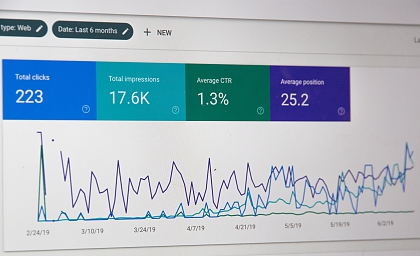Analytical skills
Being analytical involves applying a logical, critical and methodical thought process when assessing information, or solving a problem. This includes looking for root causes, identifying variables or sources of error, and predicting their potential impact on the final outcome.
Employers value this skill as it is a reliable and well-established means of producing high-quality professional work, and demonstrates an ability to deconstruct complex problems using attention to detail and perseverance.
Activities where you could develop analytical skills
Your course is extremely likely to test your powers of analysis, whether this is based upon lab results, conflicting literary sources or medical diagnoses. It is important to identify and showcase such examples when writing your CV. Individual assignments, group coursework and exam preparation can also require processing and analysing large amounts of information.
- University College for Interdisciplinary Learning can offer opportunities to test your analytical skills in different areas
- Masood Entrepreneurship Centre resources may allow you to explore your business ideas and critical approach to enterprise
- Talks, workshops and skills training sessions Run by employers or careers consultants; watch out for activities like business games, assessment centres and commercial awareness.
- Work Experience Develop a range of skills and build up your experience whilst at university.
- My Learning Essentials workshops and resources Critical reasoning and analytical skills.
How are analytical skills tested in recruitment?
Written applications may require a candidate to provide examples of their skills, and how they demonstrate analytical ability. This may be backed up by Numerical Aptitude or Diagrammatical Reasoning tests. Technical applications can also include questions or tasks designed to test analytical skills, such as error checking a document or section of programming.
Interview questions may test analytical skills in a similar way, as well as drawing on hypothetical situations:
- Describe the last time you had to analyse a lot of information or data. What sort of information did this involve? What did you learn from the analysis?
- Critically analyse the effects of the COVID-19 pandemic on our sector.
- Demonstrate how you have developed your analytical skills whilst at university.
If you are unsure how to structure an answer for either application or interview questions, visit the application and interviews section of our website and find out about the CAR (context, action, result) and STAR (situation, task, action, result) models. Our recommendations are based on feedback from employers.
Assessment centres may offer written tasks or case studies which require the candidate to read through multiple documents or assess data, before writing a report or summary.
A similar approach may be taken with a group task involving other candidates. A final variation may be a presentation or role-play, where you are expected to explain your analysis to an assessor. All these types of task will be a time-limited means of testing your analytical skills.

